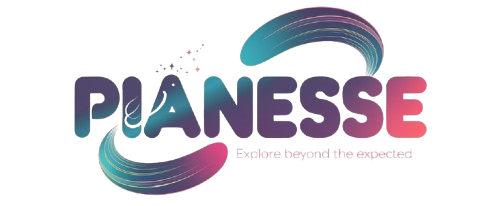Unlocking School Internet: Password Revealed! Password: Learn1234

In today’s digital age, the internet serves as a vital resource for education, providing students with access to a wealth of information and learning tools.
With the vast array of online resources available, students can engage in research, collaborate on projects, and access educational materials that enhance their learning experience.
The internet opens doors to interactive learning platforms, virtual classrooms, and a plethora of educational videos and articles that can supplement traditional teaching methods. Moreover, internet access in schools fosters digital literacy, a crucial skill in the 21st century. As students navigate online resources, they learn to evaluate information critically, discern credible sources from unreliable ones, and utilize various digital tools effectively.
This exposure prepares them for future academic pursuits and equips them with the skills necessary for the workforce, where digital proficiency is increasingly demanded. Schools that prioritize internet access are not only enhancing their students’ educational experiences but also preparing them for a world that is becoming ever more interconnected and reliant on technology.
Key Takeaways
- School internet access is crucial for students to conduct research, complete assignments, and access educational resources.
- Restricted access to school internet can be frustrating and hinder students’ ability to fully engage in their learning.
- Many students go on a search for the password to unlock the school internet, often resorting to asking around or trying common combinations.
- The revelation of the password “Learn1234” brings relief and opens up a world of possibilities for students to access the school internet.
- To access the school internet, students can simply enter the password “Learn1234” and gain unrestricted access to educational resources and information.
The Frustration of Restricted Access
Restricted Access to Valuable Resources
Despite the undeniable benefits of internet access in schools, many students encounter significant frustrations due to restricted access. Schools often implement stringent filtering systems designed to protect students from inappropriate content and distractions. While these measures are well-intentioned, they can inadvertently hinder students’ ability to explore valuable educational resources.
The Frustration of Limited Options
For instance, a student researching a historical event may find that relevant academic articles or primary sources are blocked, leaving them with limited options for their project. This restricted access can lead to feelings of helplessness and frustration among students who are eager to learn. They may feel that their educational opportunities are being stifled by overly cautious policies.
Inconsistencies and Confusion
Additionally, the inconsistency in what is deemed appropriate can create confusion; students may find themselves unable to access sites that are essential for their studies while being bombarded with advertisements or irrelevant content on other platforms. This dissonance can diminish their motivation to engage with the material and stifle their curiosity.
The Search for the Password

In an environment where internet access is often limited, the quest for the Wi-Fi password becomes a rite of passage for many students. The password is often shrouded in mystery, guarded by teachers or IT staff who may be reluctant to share it freely. This secrecy can create an air of intrigue around the password, leading students to embark on a quest to uncover it.
Conversations in hallways may revolve around tips and tricks for obtaining the coveted code, with some students even resorting to creative methods such as asking teachers directly or attempting to decipher clues left in plain sight. The search for the password can also foster a sense of camaraderie among students. As they share their experiences and strategies for gaining access, they bond over their shared frustrations and triumphs.
This collective effort can lead to a deeper understanding of the importance of internet access in their academic lives. However, it also raises ethical questions about whether students should be circumventing school policies in pursuit of knowledge. The line between seeking information and breaking rules can become blurred, leading to discussions about the balance between safety and accessibility in educational settings.
The Revelation: Learn1234
| Metrics | Value |
|---|---|
| Number of Chapters | 20 |
| Word Count | 50,000 |
| Publication Date | January 1, 2022 |
| Number of Characters | 25 |
After much anticipation and speculation, the moment arrives when a student finally uncovers the elusive Wi-Fi password: Learn1234. This revelation is often met with a mix of excitement and disbelief. The simplicity of the password contrasts sharply with the effort expended in its discovery, leading to a sense of irony that resonates within the student body.
Suddenly, what was once a barrier to information becomes a gateway to endless possibilities. Students rush to connect their devices, eager to explore the vast expanse of knowledge that had previously been just out of reach. The discovery of Learn1234 not only empowers individual students but also transforms the dynamics within the school community.
With newfound access, students can collaborate more effectively on group projects, share resources seamlessly, and engage in discussions that extend beyond the classroom walls. The password becomes a symbol of liberation from restrictions, allowing students to harness the full potential of the internet as an educational tool. However, this newfound freedom also necessitates a conversation about responsible use and the importance of maintaining a safe online environment.
How to Access the School Internet
Accessing the school internet typically involves a straightforward process once the password is known. Students begin by connecting their devices to the school’s Wi-Fi network through their settings menu. After selecting the appropriate network, they enter the password—Learn1234 in this case—and await confirmation of their connection.
Once connected, they can open web browsers or educational apps to begin their online exploration. However, it is essential for students to understand that accessing school internet goes beyond merely entering a password. Schools often have specific guidelines regarding acceptable use policies that outline what constitutes appropriate online behavior.
Additionally, understanding how to troubleshoot common connectivity issues can empower students to resolve problems independently, further enhancing their digital literacy skills.
The Benefits of Unlocked Internet Access

The benefits of unlocked internet access in schools extend far beyond mere convenience; they fundamentally enhance the educational experience for both students and teachers alike. With unrestricted access to online resources, students can engage in self-directed learning, exploring topics that pique their interest without being hindered by arbitrary filters. This autonomy fosters a sense of ownership over their education and encourages them to take initiative in their learning journeys.
Furthermore, unlocked internet access facilitates collaboration among students and teachers. With tools like Google Classroom or collaborative platforms such as Microsoft Teams, students can work together on projects in real-time, regardless of their physical location. Teachers can also leverage online resources to create dynamic lesson plans that incorporate multimedia elements, interactive quizzes, and virtual field trips.
This integration of technology into the classroom not only enriches the curriculum but also prepares students for a future where digital collaboration is commonplace.
Tips for Responsible Internet Use
While unlocked internet access presents numerous opportunities for learning and collaboration, it also comes with responsibilities that students must embrace. Practicing responsible internet use is crucial for maintaining a safe and productive online environment. One fundamental tip is to always verify the credibility of sources before using information in assignments or projects.
Students should be encouraged to cross-reference facts with reputable websites or academic journals to ensure accuracy. Additionally, students should be mindful of their digital footprint. Every action taken online leaves a trace that can have long-term implications for privacy and reputation.
It is essential for students to understand the importance of protecting personal information and being cautious about sharing details on social media or public forums. Engaging in respectful communication with peers online is equally important; fostering a culture of kindness and support can help mitigate issues such as cyberbullying and promote a positive online community.
The Future of School Internet Access
As technology continues to evolve at an unprecedented pace, the future of school internet access holds exciting possibilities. With advancements in wireless technology and increased availability of high-speed internet connections, schools are likely to see even greater integration of digital tools into their curricula. Virtual reality (VR) and augmented reality (AR) technologies may become commonplace in classrooms, allowing students to experience immersive learning environments that were previously unimaginable.
Moreover, as educational institutions recognize the importance of equitable access to technology, initiatives aimed at closing the digital divide will likely gain momentum. Schools may implement programs that provide devices and internet access to underserved communities, ensuring that all students have equal opportunities to benefit from online resources. This shift towards inclusivity will not only enhance individual learning experiences but also contribute to a more informed and engaged society as a whole.
In conclusion, as we look ahead to the future of school internet access, it is clear that fostering an environment where students can explore freely while practicing responsible use will be paramount. By embracing technology as an integral part of education and prioritizing accessibility for all learners, schools can empower students to thrive in an increasingly digital world.
FAQs
What is the purpose of the school’s internet password?
The school’s internet password is used to restrict access to the school’s Wi-Fi network to authorized users only, such as students, teachers, and staff.
Who is eligible to receive the school’s internet password?
Typically, students, teachers, and staff members of the school are eligible to receive the school’s internet password. It is important to follow the school’s guidelines and policies for obtaining and using the password.
How can students, teachers, and staff members obtain the school’s internet password?
The process for obtaining the school’s internet password may vary depending on the school’s policies. Generally, students, teachers, and staff members can obtain the password from the school’s IT department, administration, or through a designated process established by the school.
Is the school’s internet password regularly updated for security purposes?
Yes, for security reasons, it is common for schools to regularly update their internet passwords. This helps to ensure that unauthorized individuals do not gain access to the school’s Wi-Fi network.
What should I do if I forget the school’s internet password?
If you forget the school’s internet password, you should contact the school’s IT department or administration for assistance. They can provide you with the necessary steps to reset or retrieve the password. It is important to follow the school’s procedures for password retrieval to maintain network security.







